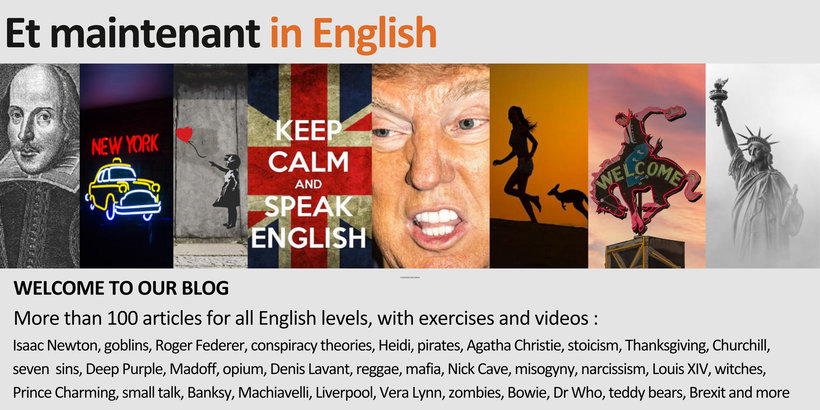Level B1 and above
Learning vocabulary is NOT about learning individual words. You must learn the words that are commonly used together. We call these collocations. For example, we say fast food, not quick food.
Expanding your English vocabulary needs discipline. It’s a little like going to a fitness centre. No pain, no gain. It takes time and a bit of cerebral sweat to build a muscly vocabulary. Curiosity also helps.
The challenge is to transform passive knowledge into active language. Yes, that means speaking.
When you find a new word, or a word that you aren’t quite sure about, you need to give it a thorough workout, and get to know it in all its forms.
Learning vocabulary is NOT about learning individual words. You must learn the words that are commonly used together. We call these collocations. For example, we say fast food, not quick food. You make a cup of tea. You don’t do a cup of tea. We speak about a profit margin and a profit and loss statement.
Let’s start with the word worth. The first simple question you should ask is: Does it have a positive or negative meaning? In this case it’s positive. Can you think of another word that has a similar meaning? In this case a synonym is the word value.
Now it’s time to become Sherlock Holmes. Start by clicking here: https://www.oxfordlearnersdictionaries.com/. This is a free online dictionary designed for intermediate to advanced learners. It’s English-to-English. Here’s some of the information you will find about worth:
Definition: having a value in money, or a general value (adjective).
Examples: Our house is worth about £300 000. How much is this painting worth? It isn’t worth much. If you answer this question correctly, it’s worth five points.
Expressions: to be worth a fortune (a lot of money), worth your/its weight in gold (very useful or valuable) A good car mechanic is worth his weight in gold
Often there are second and third definitions:
For example: to recommend doing something because you think it may be useful or enjoyable. The museum is certainly worth a visit; worth doing something. This idea is well worth considering. It’s worth making an appointment before you go.
You might find the word used in a proverb: a bird in the hand is worth two in the bush. Meaning: it is better to keep something that you already have than to risk losing it by trying to get much more
Worth (noun) – 1. an amount of something that has the value mentioned. 40 dollars’ worth of petrol. The winner will receive 100 francs’ worth of books.
2. the financial, practical or moral value of somebody/something. Their contribution was of great worth. The activities help children to develop a sense of their own worth. A good interview enables candidates to prove their worth (show how good they are). She has a personal net worth of $10 million.
When you have a general sense of the word it’s time to investigate its other forms.
Opposites: Worthless (adjective) – having no practical or financial value. The painting is worth nothing. It’s worthless. The meeting was worthless. No-one had anything positive to say.
(of a person) having no good qualities or useful skills. A worthless individual. Constant rejections made him feel worthless.
Unworthy (adjective) – (of something or somebody) not having the necessary qualities to deserve something, especially respect. He considered himself unworthy of the prize they had given him.
Worthwhile (adjective) – important, enjoyable, interesting; worth spending time, money or effort on. It was in aid of a worthwhile charity. The smile on her face made it all worthwhile. We all felt we had done something worthwhile for the local community.
Trustworthy (adjective) That you can rely on to be good, honest, sincere. John will help you. He’s trustworthy.
Roadworthy, seaworthy (adjective) In a safe condition. My car didn’t pass the inspection. It is unroadworthy.
The best way to increase your vocabulary is to read and read and read more. Don’t skip over words that you don’t know or you’re not really sure about. Stop for a moment. Be curious. Check the word here: https://www.oxfordlearnersdictionaries.com
Of course, it’s difficult to learn every meaning and nuance of a new word. Begin with the most common sense of the word and start using it.
Remember: You need to learn the phrases and words associated with your new word.
For example: How much is it worth? What is it worth? I don’t think it is worthwhile planning another meeting. Jenny is a great organiser in the office. She is worth her weight in gold. This watch belonged to my grandfather. I thought it might be worth a fortune, but it’s worthless.
Remember: If it is worth doing, it’s worth doing well.
Photo: Upsplash


